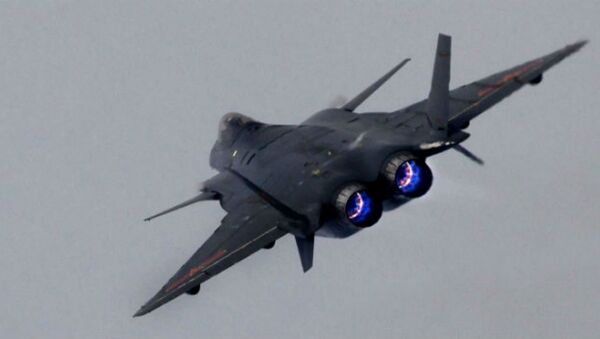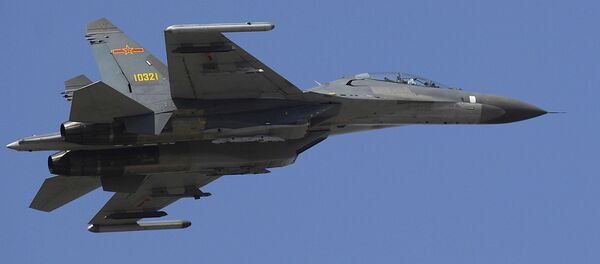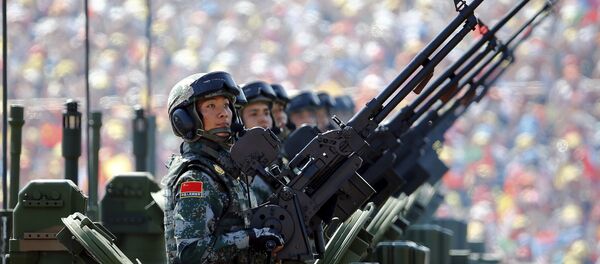Designed by the Luoyang Electro-Optical Research Institute (LEOC), images of the fifth-generation PL-10 first surfaced in 2013. Carried onboard the J-20 fighter, the missiles have also been seen on the J-11, a copy of the Russian Su-27.
Based purely on those photos, experts were able to confirm that the PL-10 utilizes thrust vectoring. Its large fins also likely give the missile high rates of maneuverability, and it may feature a helmet-mounted display sighting system.
Speaking on a Chinese television broadcast last month, Liang Xiaogeng was able to provide more concrete details.
Weighing in at nearly 200 pounds, the 10-foot PL-10 features "world-class" capabilities. After being in development for the past seven years, the missile has a range of 12 miles.
According to Liang, the missile also includes "multi-element imaging infrared seeker with anti-jamming capabilities" and off-boresight attacks.
So far, the PL-10 has already been successfully test-fired 30 times.
This isn’t Liang’s first rodeo. He’s also worked on LEOC’s PL-9C, an infrared/helmet-sighted air-to-air missile, and served as chief designer for the medium-range PL-12.
Liang’s interview came only days before the September 3 military parade in Beijing highlighted the Chinese military’s latest developments. With over 500 units of military hardware and 200 aircraft, the event showed off a number of previously classified ballistic and cruise missiles.
“Much of the weaponry on display – all of it said to be in service in the People’s Liberation Army – will be new, the product of a military modernization drive aimed at ensuring that China can never again be attacked with impunity or overrun by foreign invaders,” retired US Ambassador Chas W. Freeman told Sputnik.
The advanced PL-10s, equipped onboard the maneuverable J-11s, could be a highly effective combination.




